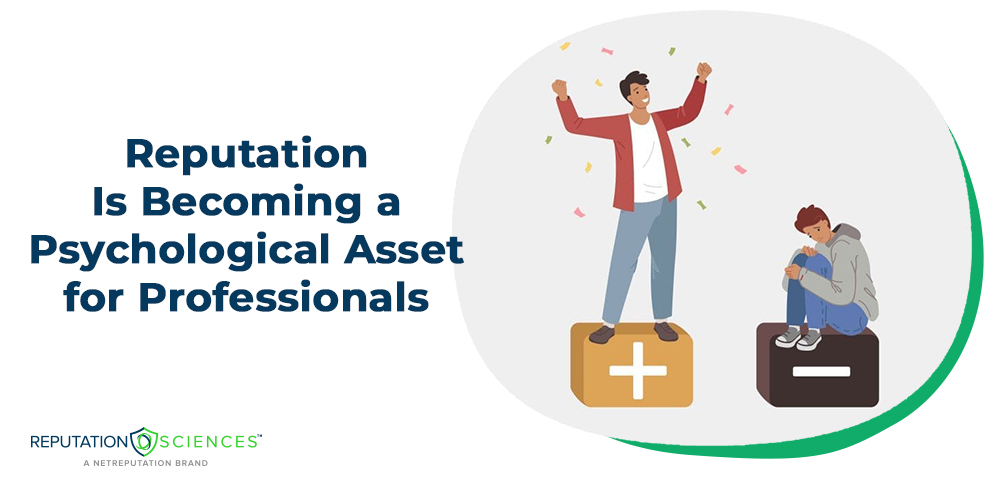Reputation Is Becoming a Psychological Asset for Professionals

Reputation is no longer just a social currency—it’s a core psychological asset that can influence everything from career success to overall well-being. How others perceive you isn’t just a reflection of past actions but a dynamic attribute shaped by values, behaviors, communication, and culture. This article examines the development and cultivation of reputation as a psychological asset, its significance, and the impact on physical health, positive emotions, and long-term life outcomes.
What Is Reputation as a Psychological Asset?
A psychological asset is a personal resource that contributes to mental resilience, success, and happiness. Angela Duckworth, known for her research on grit and character, emphasizes that certain internal assets can be just as influential as external ones. Reputation is one of those enduring psychological assets—a trait that helps individuals navigate life’s challenges, reflect purpose and meaning, and shape their outcomes across personal and professional domains.
When someone has a strong reputation, they often benefit from increased trust, greater access to resources, and enhanced leadership opportunities. These benefits not only improve their professional success but also enhance their emotional and physical well-being.
The Four Psychological Assets That Shape Reputation
Researchers and psychologists have identified several core traits that shape strong reputations and promote well-being:
1. Hope
Hope fuels resilience, reflecting an individual’s ability to envision and pursue positive outcomes, even in the face of adversity. It plays a vital role in creating a reputation for leadership and optimism.
2. Engagement
Engagement is the level of interest and focus a person applies to their goals, work, and relationships. When others observe consistent engagement, it builds a reputation of reliability and investment.
3. Curiosity
People who cultivate curiosity are more open to new ideas, reflective of diverse perspectives, and tend to play well with others in collaborative settings. This attribute supports a growth-oriented reputation.
4. Meaning
Having a sense of meaning in life and work promotes psychological well-being and encourages others to see you as purposeful and driven. A person perceived as living with purpose often commands more respect and influence.
Together, these four psychological assets support the foundation of a strong reputation, enhancing a person’s mental health, self-worth, and success trajectory.
Why Reputation Matters for Well-Being
The perception others hold of you influences your lifestyle, self-esteem, and even physical health. Positive emotions linked to a strong reputation—such as gratitude, pride, and connection—are essential for happiness. Research in positive psychology suggests that social bonds enhance well-being, and a reputation serves as a key gateway to forming these bonds.
A good reputation can:
- Buffer against psychological threats like isolation or self-doubt
- Help people gain access to leadership roles, resources, and support systems
- Reflect alignment with core values and a sense of identity
In organizational cultures, professionals who are recognized for their trustworthiness and emotional intelligence tend to advance more quickly and experience greater job satisfaction.
How to Cultivate Your Reputation as a Psychological Asset
Reputation is not static. It is built, maintained, and occasionally repaired. With intentional effort, anyone can develop and strengthen it as part of their psychological toolkit.
- Practice Self-Awareness: Understand how others perceive your actions, words, and tone of voice. Self-reflection allows you to create alignment between your intentions and how they’re received.
- Focus on Character: Develop traits like integrity, empathy, and reliability. These characteristics endure and are often the foundation of a respected public image.
- Invest in Positive Relationships: Friends, colleagues, and mentors can serve as both mirrors and amplifiers of your reputation. Engage meaningfully with others and maintain authentic connections.
- Handle Challenges with Grace: Reputation is often shaped during difficult times. Responding to setbacks with maturity and hope reinforces positive perceptions and demonstrates resilience.
- Lead with Values: Your values serve as a compass in both your personal and professional life. Living by them consistently creates a reputation of authenticity and strength.
The Role of Culture and Organizations
Organizational culture plays a significant role in shaping individual reputations. A workplace that values psychological safety, curiosity, and personal growth will encourage employees to develop their reputations through shared values and team-based success.
Companies that understand the importance of reputation as a psychological asset can foster:
- Greater engagement and loyalty
- Reduced burnout and stress
- Increased innovation and collaboration
This results in a workplace where professionals don’t just perform—they thrive.
Final Thoughts: Reputation as a Tool for Resilience
Reputation isn’t just about perception. It’s a reflection of your internal values, psychological attributes, and your engagement with the world. When viewed as a psychological asset, it becomes a tool for enduring success, happiness, and meaning.
By cultivating hope, curiosity, engagement, and purpose, you can shape a reputation that supports your personal well-being and unlocks opportunities that align with your highest goals.
As with all psychological resources, the power lies not only in possessing them but in how you choose to practice, reflect, and grow them in your everyday life.
